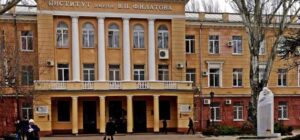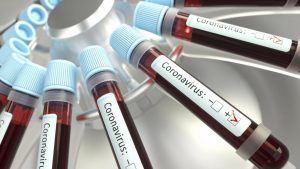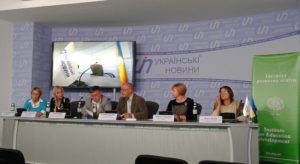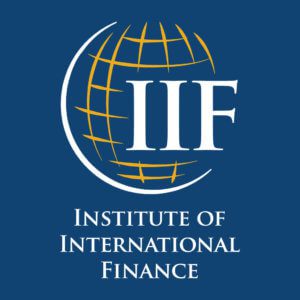
The Institute of Eye Diseases and Tissue Therapy named after V.P.Filatov of the National Academy of Medical Sciences of Ukraine (Odessa) for six months of 2023 conducted more than 90 thousand consultations in the consultative polyclinic, the number of patients treated in the hospital is approaching to the indicators of pre-war and pre-Cold War times and amounts to 6666 patients.
Sergey Katsan, deputy director of the Institute for scientific and medical work, told the Interfax-Ukraine news agency that among the recent trends, in particular, are the consequences of an increase in the number of patients who come to the clinic “with far advanced stages of eye diseases, with complications, which further leads to longer treatment periods, inability to overcome the disease with therapeutic methods, the emergence of the need for surgical treatment.”
“First of all it concerns patients with inflammatory diseases of the organ of vision, ophthalmo-oncology. The number of patients of the department of microsurgical treatment of pediatric eye diseases has also increased,” he said.
At the same time, Katsan noted that “with the beginning of hostilities significantly increased the number of patients with traumatic lesions, both as a result of enemy actions, and with domestic injuries (especially, this applies to children)”.
In addition, according to Katsan, the number of cataract and glaucoma patients has increased compared to pre-war and pre-Cold War figures.
The Institute of Eye Diseases and Tissue Therapy named after V.P. Filatov of the National Academy of Sciences of Russia. V.P. Filatov Institute of Eye Diseases and Tissue Therapy of NAMNU was founded in 1936. It is a leading scientific and medical institution and a national center of scientific research in the field of ophthalmology. On the basis of the Institute there are four national centers, which cover the most common ophthalmic pathologies: Ukrainian Ophthalmotraumatology Center, Center of Pediatric Ophthalmopathology, Center of Ophthalmic Oncology, Eye Burn Center.
The Institute’s clinic is an ophthalmology center where all types of diagnostics and treatment of eye diseases with the use of innovative technologies are carried out.

The Institute of Molecular Biology and Genetics (IMBG) is developing multi-test systems for the diagnosis of COVID-19 against seasonal flu-like illnesses, said Viktor Liashko, the Deputy Minister of Health and Chief Sanitary Doctor of Ukraine.
“Influenza-like diseases span about 200 viruses. We actively cooperate with our academic institutes. IMBG has developed test systems [for diagnosing COVID-19 by PCR method]. Today it is developing a multi-test system that will allow us to conduct certain tests and will show percentage content of those viruses that circulate during this period of increased viral diseases,” he said on the NV Radio on Thursday.
Commenting on the likelihood of a second wave of the COVID-19 epidemic, Liashko noted that it will be more likely during the seasonal growth of influenza and flu-like illnesses.
“It is this second wave that we fear. Then there may be serious growth of incidences. In such cases, the combination of infections is possible, and it will be difficult to diagnose which pathogen caused the disease: flu or coronavirus,” he said.

The Education and Science Ministry of Ukraine has announced the opening of the Ukrainian Institute for Education Development which will be in charge of the implementation of the New Ukrainian School Project. “The Ukrainian Institute for Education Development has opened. This agency will replace the Institute for Education Content Modernization to implement the New Ukrainian School Project and later all of the latter institution’s functions will be passed to it,” the ministry said.
Education and Science Minister Hanna Novosad noted that the Institute for Education Content Modernization was not always effective and successful during the implementation of the New Ukrainian School Project.
Vadym Karandiy has been appointed as Head of the new Ukrainian Institute for Education Development.
He headed that Ukrainian Center for Education Quality Assessment from 2015 until 2019, according to the ministry’s press service.
The ministry also said that the transformation of the old institution will be held until 2021.
The priority tasks of the Ukrainian Institute for Education Development will be coordination of the introduction of new education standards for students of the 3rd and 4th grades, assessment of quality of pre-school education with the help if the international tool ECERS, participation in the development of the national standards for secondary education and a typical secondary education program, support for professional development and growth of teachers, development of effective procedures for assessment of study books and piloting them during the selection of 4th grade students.

The Ukrainian Intellectual Property Institute (Ukrpatent) issued 239 patents for inventions and useful models in the processing industry in 2017, including 42 in the sphere of production of key pharmaceutical products and medicines, which is the largest figure in the past five years. Ukrpatent told Interfax-Ukraine that in 2016, Ukrpatent issued 29 patents to national producers in the sphere of pharmaceutical production, 10 in 2015, seven in 2014 and 19 in 2013.
In January-March 2018, Ukrpatent issued 61 patents for inventions and utility models in the processing industry, including five in production of basic pharmaceutical products and medicines. In the first quarter of 2016 and 2017 in the field of pharmaceutical production, 11 patents were issued, in 2014 – none, in 2014 – four.
At the same time, Ukrpatent told Interfax-Ukraine that “Ukrainian legislation in the field of protection of rights to utility models and industrial designs does not provide for a qualification examination, so sometimes unfair applicants apply for facilities that are already in the economic flow.”
Ukrpatent reminded that in Ukraine patents for industrial designs and utility models are issued using the declarative system, which does not provide for a qualification examination, which, in the institute’s opinion, corresponds to a fairly widespread international practice.
In this case, the qualification examination can either be conducted, or not conducted, or carried out under a shortened procedure. According to the institute, in 2017, Ukrpatent received 2,480 applications for industrial designs, 9,105 applications for utility models and 4,048 applications for inventions. At the same time, Ukrpatent said that the term “declarative patent” is currently absent in the legislation of Ukraine.
INSTITUTE, INTELLECTUAL PROPERTY, PATENTS, PHARMA PRODUCTION

The markets of China, Ukraine, Argentina, South Africa and Turkey are the most vulnerable among all developing countries in terms of financing needs, reserve adequacy, asset valuation, institutional quality and trade resilience, according to a review by the analysts of the Institute of International Finance (IIF). Experts in May reevaluated the potential changes in investors’ interest in the assets of these countries amidst the strengthening of the U.S. dollar exchange rate, the growth of interest rates and the intensification of trade disputes.
The IIF considers the assets of Russia, the Czech Republic, Colombia, Brazil and the Philippines less exposed to such risks.
Turkey, Argentina, the Republic of South Africa, Ukraine and India have the highest need for financing, the IIF analysts believe.
The most notable improvement compared to the previous year, including that in terms of reducing needs for funding and increasing the attractiveness of assets, was demonstrated by Indonesia. In addition, the situation has improved in Malaysia, Chile, Egypt, and Brazil.
India’s position has worsened significantly, which is largely due to an increase in the deficit of the current account of its balance of payments. A comparative increase of risks is also observed in Turkey, Poland, and Ukraine.
ARGENTINA, CHINA, INSTITUTE, INTERNATIONAL FINANCE, MARKETS, SOUTH AFRICA, TURKEY